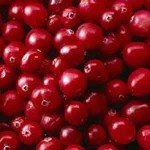A week without phone or Internet service — well, it was a change! After the first Facebook withdrawal symptoms, it was a welcome one. Knowing I would be out of communication range, I posted a week’s worth of encouragement ahead of time. Now I’m back — and learning about more how to avoid the pitfalls of aging.
We’ve talked about the ways you can prevent age-related hearing loss. It’s a real problem. When you can’t communicate you tend to withdraw socially and then you get depressed. You miss out on so much when you can’t hear. The good news is that there are things you can do to prevent it.
Turning down the volume and promptly taking care of ear infections top the list. We’ve also seen that what you eat matters. Omega 3s, folate, and magnesium have been shown by clinical studies to decrease the onset of hearing loss.
Another study I found on PubMed from 2010 tested yet another food-factor on hearing. It was an animal study done on rats. One group was given a high dose of antioxidants in their food. A second group was given a low dose, and a third group was the control, with no added antioxidants in their food.
“Auditory brainstem response (ABR) thresholds were recorded at baseline and every three months following initiation of treatment,” the abstract says. Not sure how they did that. How do you give a rat a hearing test? I’ll have to take it on trust they knew what they were doing.
At any rate, the results were clear. The more antioxidants the rats ate, the less hearing loss they experienced.
What does that mean for us non-rats? If we make sure our diets are rich in antioxidants, we can help maintain our hearing into our golden years.
And where do we get those antioxidants which do so much for us? USDA scientists analyzed antioxidant levels in more than 100 different foods. Cranberries, blueberries, and blackberries ranked highest among the fruits they studied. Beans, artichokes, and Russet potatoes topped the list for the veggies. Pecans, walnuts, and hazelnuts had the top scores in the nut category. It’s not hard to add these into your diet.
Of course, you can take an antioxidant supplement. I do. Make sure and do your research, though. Many supplements are worse than useless because they are synthetic, or not standardized, or in a form that causes them to lose their value. A study one supplement company did just to size up the competition found that some of the antioxidants had no value — and some actually had a negative value, promoting the free radicals the antioxidants should be fighting. You have to research and check out the company to make sure it is legit and reputable.
And you can eat your antioxidants by choosing foods where they abound. Except for the potatoes, all the top foods are low glycemic, so they will also help with your weight loss efforts. And that’s not a bad way to look at the picture. Instead of focusing on what you SHOULD NOT eat, focus on adding in the foods you SHOULD. Food isn’t your enemy. Your body wants nutritious foods and will run longer and more smoothly if you feed it high quality fuel.
And that includes your ears. So snack on some berries and nuts and fix an inexpensive pot of beans for dinner once in a while. You may be hearing the sweet voice of your great-great-grandchildren some day!
Eating to live and living for Christ,
Susan Jordan Brown
Here is where I found this study: http://www.ncbi.nlm.nih.gov/pubmed/20723783

